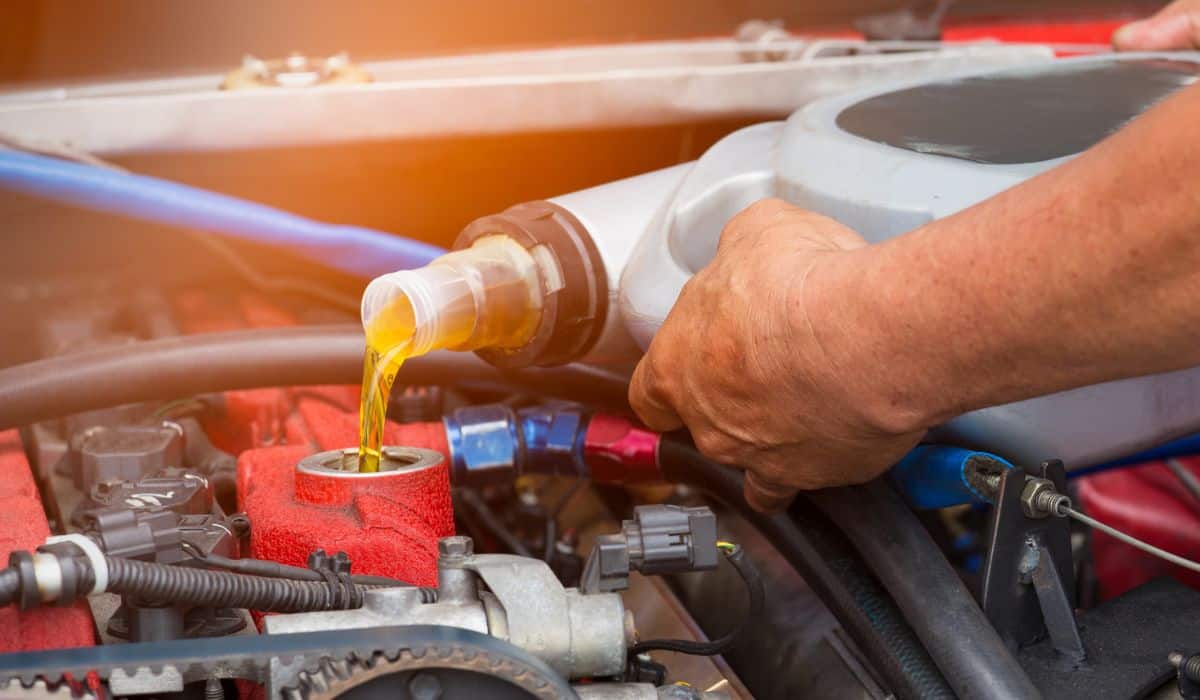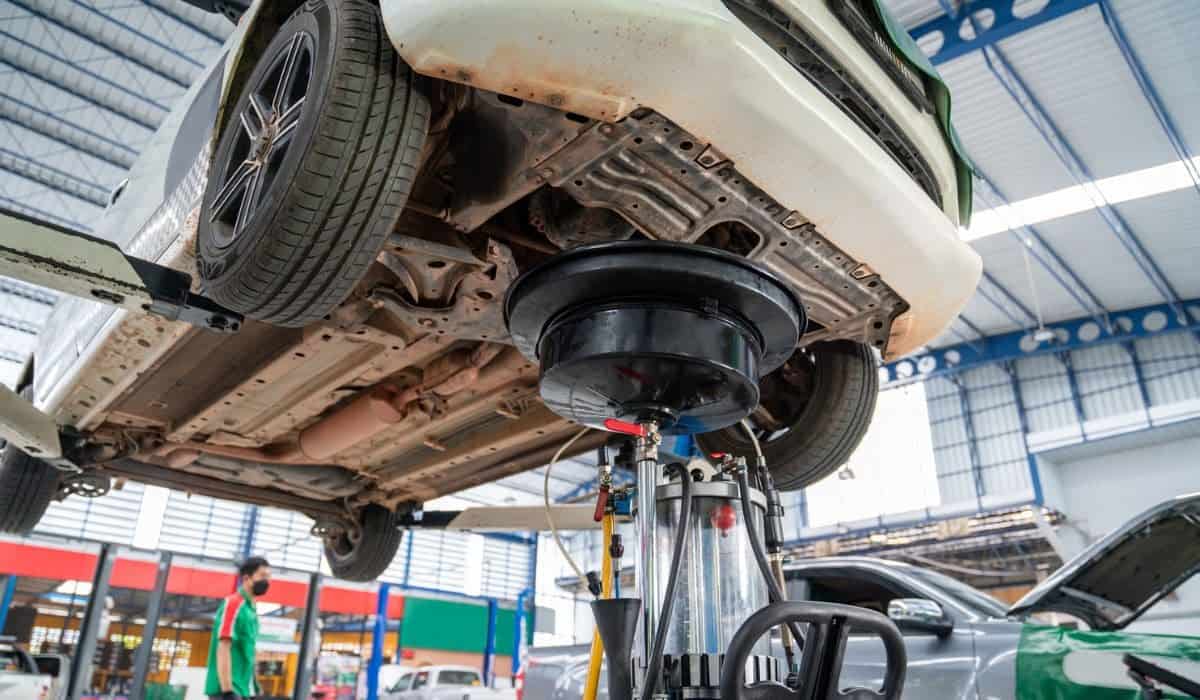Can An Oil Change Affect Your Car’s Catalytic Converter?
There are many moving parts in a vehicle, and a number of them directly impact one another. For example, the exhaust system impacts the catalytic converter, and the converter impacts a vehicle’s performance. But where does motor oil fit in? Can frequent oil changes help your converter run smoothly?
Regular, high-quality oil changes can positively impact your catalytic converter, helping it to run cleanly and efficiently. You may see lower emissions and better gas mileage. That said, excessive or low-quality oil can damage your converter over time.
So, are you getting routine oil changes? Let’s take a closer look at why they’re important, and how they impact your catalytic converter.
Can an Oil Change Affect Your Car’s Catalytic Converter?

Yes, it’s possible that an oil change can impact your vehicle’s catalytic converter, and that impact can be positive or negative.
Motor oil is essential for a car’s functionality and keeps components running smoothly. That said, the wrong oil, excessive oil, too little oil, oil quality, and other factors can affect a catalytic converter in different ways.
For example, the zinc phosphate levels in motor oil can damage converters, depending on the vehicle’s age, make, model, and additional factors.
That said, frequent oil changes and clean oil can keep your converter running smoothly.
Regular Oil Changes Can Help Your Catalytic Converter
Frequent oil changes provide proper lubrication, remove excess debris, improve gas mileage, and extend the life of a car. Regular oil changes will also ensure your catalytic converter is running cleaner and more efficiently.
Clean and efficient converters will allow the engine to have lower RPMs. This can improve your vehicle’s emissions and help you get better gas mileage. Not to mention, regular oil changes keep other parts in your vehicle running smoothly.
With other components in your car running smoothly, you can rest assured that your converter is filtering exhaust fumes that aren’t contaminated. This will keep your converter cleaner for a longer period of time.
Too Much Oil Can Damage Your Catalytic Converter
Although frequent oil changes and clean oil can keep your converter in better condition, excessive oil and low-quality mixtures can cause damage.
Excessive amounts of oil in an engine will come into contact with the crankshaft. The crankshaft then mixes the excessive amounts of oil with air, creating a foamy, aerated combination. This oil mixture is a poor lubricant and doesn’t pump well through a vehicle.
The car won’t have enough lubrication, potentially causing the components to fail and the engine to seize over time. Poor lubrication and excessive oil in the crankshaft can also lead to a catalytic converter failure.
Excessive amounts of oil can also burn up, leak, and damage other components, which can negatively impact your converter.
How Often Should You Change Your Oil?

Regular oil changes are crucial for a vehicle’s performance and longevity. Even low-quality oil can prevent internal damage, enhance performance, and improve fuel efficiency.
But there’s a lot of debate regarding the optimal time to get an oil change: Is it every 3,000 miles, or every three months?
First, there are a few things you should be aware of:
- Motor oil starts to go bad after 3,000 miles.
- The 3,000-mile time frame is typically recommended by mechanics.
- The frequency also depends on weather conditions, driving habits, and other factors.
Generally speaking, it may be best to change your oil every 3,000 miles. At the latest, you can change your oil between 3,000 and 5,000 miles. The 3,000 mark is easy to remember and will provide your vehicle with excellent preventative care.
That said, changing your oil every three months isn’t terrible either, especially if you didn’t hit the 3,000-mile mark.
